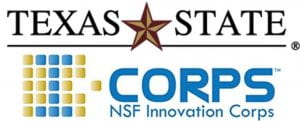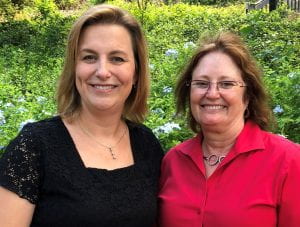
Scientists and engineers often come up with great new ideas that could have a huge impact on society. Unfortunately, most of these ideas never go anywhere because the majority of scientists and engineers have no idea how to commercialize their technologies. Texas State University recognized this when it created the Materials Science, Engineering and Commercialization (MSEC) program, to train doctoral students not just to do outstanding research in materials science and engineering but also to commercialize their work. The MSEC Program brings together faculty from the College of Science and Engineering and the McCoy College of Business to train the next generation of materials scientists and engineers.
The National Science Foundation (NSF) also recognized the need to train scientists in the art of commercialization. It created the NSF Innovation Corps (I-Corps) Program to provide entrepreneurial training and funding for scientific research teams. NSF utilizes the Lean Canvas methodology recommended by the National Innovation Network to help I-Corps teams develop a streamlined alternative to the traditional business plan.

Dr. Jennifer Irvin (left) and Dr. Jana Minifie (right) partner to run the Texas State University I-Corps Site for Entrepreneurship
Dr. Jennifer Irvin’s expertise in materials science and engineering combines with Dr. Jana Minifie’s expertise in entrepreneurship to create the ideal combination of skills necessary for I-Corps success. Irvin and Minifie teamed together to create an NSF I-Corps Site at Texas State. With over $350K in funding since 2018, the Texas State I-Corps Site helped over 130 teams (over 300 students and faculty members) to evaluate the commercialization potential of their ideas. To date, 8 teams were selected to attend the National I-Corps program, and 12 small businesses were formed based on Texas State I-Corps teams. The I-Corps Site serves to grow the commercialization culture at Texas State, advancing scientific knowledge and activities that contribute to societally relevant outcomes for both domestic and international markets.
As NSF’s I-Corps model transitioned to Hubs instead of Sites, Texas State modified its approach and created the Faculty Innovation Accelerator Program (FIAP) for faculty-student teams who want to commercialize their research. FIAP combines I-Corps customer discovery training with training on how to navigate the university’s intellectual property (IP) disclosure and translation process. Irvin and Minifie work with Texas State’s Technology Transfer office to help the teams protect their IP and reward successful teams with up to $11K in research funding.
